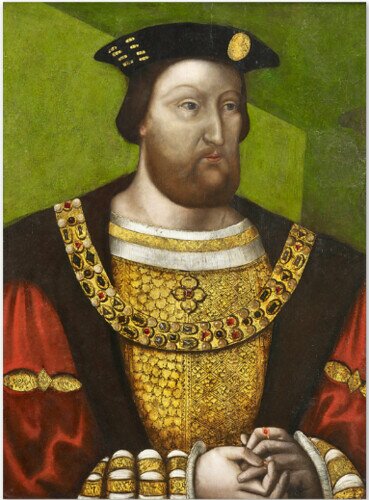Marianne Williamson, who is one of twenty-something Democrats running for the party’s presidential nomination, and who has absolutely no chance of being nominated, recently made a few waves when she spoke of “dark psychic forces” emanating from Donald Trump.
Regardless of the accuracy of Williamson’s admittedly bizarre accusation, it does seem that the country is going through a rather contentious period. Yet history teaches us that it can be much worse, and that nations seem to go through periods in which Dark Psychic Forces (capital letters mine) seem to be in play.
I have written more than once about the HBO Series “Game of Thrones” and the analogies that can be drawn from the events in the story. The series has concluded, so we won’t (at least until the prequel is released) be getting any more analogies drawn from GOT for a while.
But fear not. If “Game of Thrones” is not available, then what about its historical inspiration, the Wars of the Roses in 15th Century England? For those interested, there are options for late-summer viewing and reading readily available. The Starz Network has release three mini-series based on the novels of Phillipa Gregory: “The White Queen”, “The White Princess”, and “The Spanish Princess”. Conn Iggulden has given us a four volume retelling of the Wars of the Roses, beginning with “Stormbird” and ending with “Ravenspur: the Rise of the Tudors.” These novels and films give us a painless way to absorb some history and ponder its relevance to our own times.
The Gregory novels from which the TV series are drawn focus on the women who played such pivotal roles at the time. They are quite a group. Start with Elizabeth Woodville (“the White Queen”), the beauty of common birth who so captivated Edward IV that he defied his principal supporter, the Earl of Warwick, to marry her. She then drove her husband to alienate the Warwick faction so much that they rebelled. She was the mother of the “Princes in the Tower”, as well as of her daughter Elizabeth, who married Henry VII and was the mother of Henry VIII.
There was also Warwick’s daughter Anne, the “Kingmaker’s Daughter” who married Richard III. And there was the redoubtable Margaret Beaufort, married at age 12 and a mother at 13, who was convinced that she had been sent a divine vision that her son, Henry Tudor, would be king. She practically willed Henry VII to the throne by force of her personality.
Iggulden’s novels contain more action and provide us with more information about the men of the times. These include Warwick, the Kingmaker, who never quite managed to get his lineage into the line of succession. They include Edward IV, a giant of a man, well over six feet tall in an age when most were far shorter. He personally led his forces in battle. Smitten by Elizabeth Woodville, whom he made Queen, he fathered eight children by her. None reigned as king, but his daughter Elizabeth (“The White Princess” in the Gregory stories) became queen.
One of the Iggulden novels tells the story of Margaret of Anjou, the French princess who married the addle-brained Henry VI. Margaret gets some bad press in Shakespeare’s plays, but her story is remarkable. She managed to hold the kingdom together by her beauty and force of personality. In the end she lost the fight for the throne, but she kept the Lancaster cause going for years.
Obviously, there is considerable entertainment value to these novels and films. But are there any take-away’s for 21st Century Americans? I think there are.
First, it seems that every nation and every culture goes through its hyper-contentious periods. We have had our own Civil War. England has gone through such periods more than once. There was civil war and a “glorious revolution” in the 1600’s, and a Scots rebellion a century later. As irritating as our political rhetoric seems today, we’re a long way, I hope, from actual strife.
Secondly, there is always room for the extraordinary leader. Force of personality means a lot. The Wars of the Roses teach us that strong women were able to lead and influence well before the rise of feminism or even voting rights for women.
What about now? Do we have any Elizabeth Woodville’s? Any Margaret Beaufort’s? Anyone with the courage of Margaret of Anjou? I’m sure we do, but you can’t tell it from the field of presidential candidates.
Williamson? Don’t be absurd. Elizabeth Warren is a colossal fraud. Gellibrand or Kochubar? Both ciphers. Kamala Harris has made an impact, but she takes criticism about as well as… Donald Trump. Tulsi Gabbard has shown potential, but her own party doesn’t like her.
On the other side of the aisle, things are a little better. Joni Ernst, Marsha Blackburn, and Susan Collins all have the courage of their convictions, although none look “presidential”.
But what about Nikki Haley? Hmmm. Stay tuned on her.
*****
This essay originally appeared in the Kingsport (TN) Times-News
Photo by tonynetone 



Comments